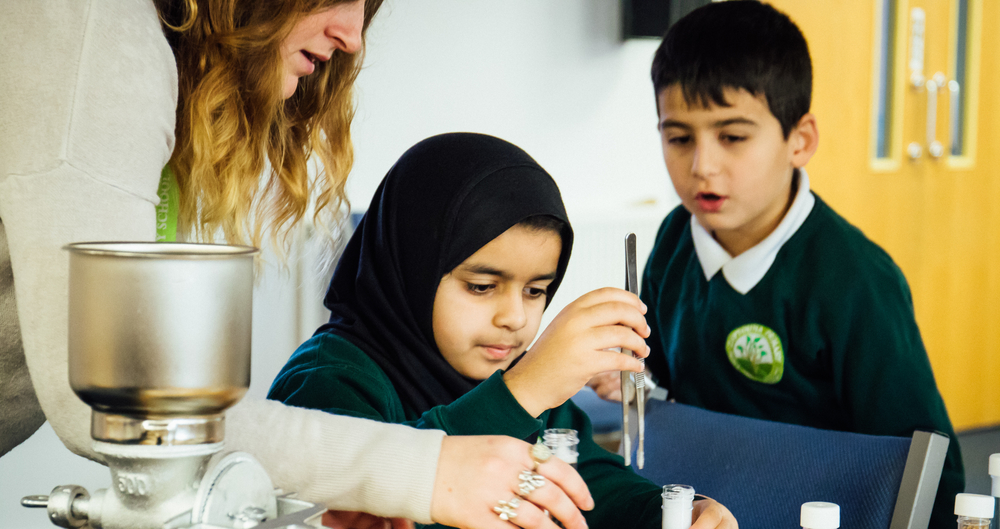On 8 June, NFU President Minette Batters chaired the NFU Education roundtable ‘How can agriculture plug the STEM skills gap?’
The roundtable followed the publication of a new report by the NFU, which highlighted the effectiveness of using agriculture as a tool to teach STEM.
It was a chance to highlight the barriers preventing young people from taking up important STEM careers, including a lack of exciting STEM-related experiences as younger children.
Working together
The group, which included representatives from the Association for Science Education, Rothamstead research and Warwick University, committed to working together to ensure agriculture is used to inspire STEM learning.
During the roundtable, Minette Batters spoke about how successful agriculture-based topics, designed to align to the school curriculums in both England and Wales, had been when teaching STEM subjects. They enabled children to learn about food and farming and created a fantastic environment for them to fully engage in STEM.
“The skills gap we see in STEM careers is not just happening in agriculture, but across the whole economy,” she said. “It is vital that we encourage more young people into these roles by exposing them to the opportunities and potential as early as possible.”
A common goal
Seeing so many organisations take up their invitations to the round table shows how important filling the skills gap is. Minette Batters went on to say: “It’s been really encouraging to see so many organisations come together, from primary science learning and universities to some of the biggest farming and STEM businesses in the country, to align ourselves to one common goal to inspire the future generation to choose a career in STEM.
“We know from successful past experiences of the NFU Education programme that teaching STEM subjects using agriculture can help lay the pathway for STEM careers in the future, and it was great to see this group of organisations really championing this approach as a way of benefiting every industry, including agriculture, that needs STEM roles.”
Technological opportunities
Charles Nicklin, Chief Executive Officer at the Institution of Agricultural Engineers (IAgre), commented: “There are so many careers you can go into within agriculture, it’s not just farming. Over this next decade, we are in for a real explosion in technology; technology in agriculture has significantly increased over the past ten years. The next steps will be developments in autonomous vehicles, drones and increased usage of precision agriculture techniques.
“All of this is going to need some really talented people, not only to design and develop the technology but to commission it on farms, advise farmers on how to use it and of course to service and repair it when it goes wrong. This means more people coming from outside agriculture into the industry, demolishing the opinion that you need to be born into it and showing everyone what exciting roles they could be doing.”
A chance to level up
Hannah Russell, Chief Executive at the Association for Science Education (ASE), who also attended, explained the value in working together: “We’re delighted to work with the NFU on education activities, it’s really clear why those activities are so impactful.
She went on to say: “One of the main barriers we all have to think about is equity. Although many people have had the opportunity to spend more time outdoors over the past year, this hasn’t been true for everyone. Natural England’s ‘People and Nature Survey’ of children found that 73% of children from low-income households had spent less time outdoors during the pandemic. This disparity has also been reflected in ASE’s own survey of practical science during the first lockdown.
“Agriculture has a really important part to play in outdoor learning and making sure everyone gets equal opportunities to access and benefit from it is so important.”
Igniting children’s passion for STEM
The round table concluded that teaching STEM subjects through real-life and relevant scenarios such as agriculture can help ignite children’s passion for STEM subjects. NFU Education will continue working to this end with farmers and educators alike.
Read more about the NFU’s Inspiring STEM learning through agriculture.
